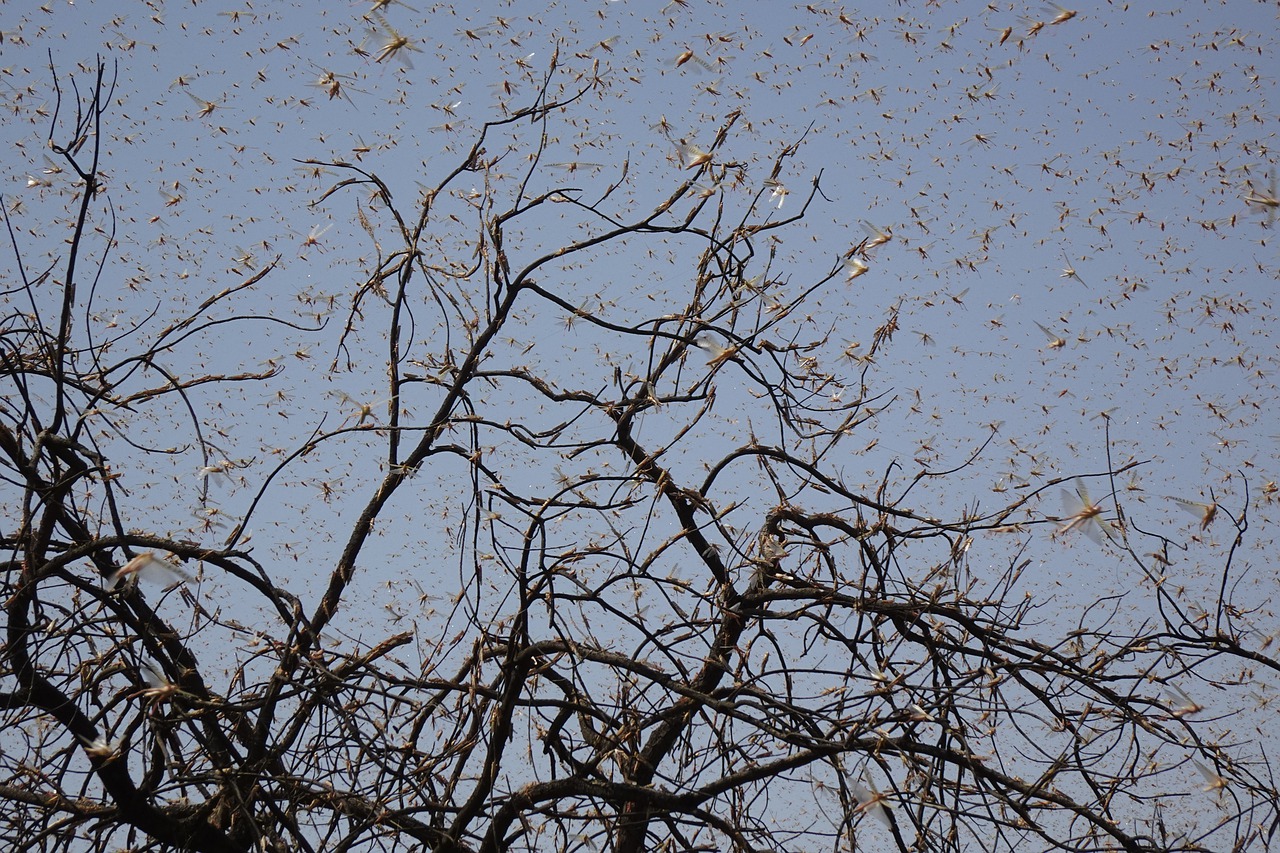Locust invasion: Kenyan startup turning crisis into opportunity, here's how
The project by The Bug Picture aims at mobilising affected community members to harvest live locusts. Once they are collected, the members will receive immediate payment (according to the weight) through Mpesa, a mobile money transfer service in Kenya.

- Country:
- Kenya
Kenya is grappling with the worst locust plague in decades. The country is already facing high levels of acute food insecurity and the ongoing desert locust invasion is worsening the situation.
According to the United Nations' Food and Agriculture Organisation (FAO), a single square kilometre of swarm covering one square kilometre has the potential to consume the same amount of food in one day as 35,000 people. With every new generation of breeding, their numbers can exponentially increase - a 20x increase after three months, 400x after six months and 8000x after nine months.
As locust swarms continue to threaten parts of Kenya, The Bug Picture, a Kenyan startup dedicated to addressing environmental challenges in East Africa via the sustainable use of insects, is turning the crisis into opportunity. The regenerative agriculture company harnesses the power of insects to create a locally produced, competitively priced sustainable alternative protein source.
Collect locusts, get paid
With support from Danida emergency funding, The Bug Picture is working on an alternative response to future plagues by viewing the desert locusts - considered the most destructive migratory pest in the world - as a crop that can be harvested and processed to be further used as an input in animal feed and bio-fertilisers.
The project aims at mobilising affected community members to harvest live locusts. Once they are collected, the members will receive immediate payment (according to the weight) through Mpesa, a mobile money transfer service in Kenya.
According to a Reuters report, the project oversaw the harvest of 1.3 tons of locust between February 1-18, with the locals being paid KES50 (USD0.46) per kilogram of insects.
"We are trying to create hope in a hopeless situation, and help these communities alter their perspective to see these insects as a seasonal crop that can be harvested and sold for money," Laura Stanford, founder of The Bug Picture, was quoted as saying by the Reuters.
This unique approach of community-based harvesting and processing of locusts is said to be suitable for small swarms that are not targeted by the spray operations being carried out by the Food and Agriculture Organisation (FAO) of the United Nations, either due to the size of the swarm or its close proximity to people and settlements.










